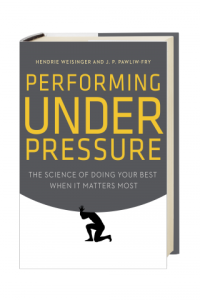How did a confident person get confident? You can do the same.
Confidence by those who study the subject is “the degree to which you think and “feel” your actions will achieve positive results.” I’ve learned no matter how bad a shot a basketball player takes, for example, when he shoots the ball, he thinks it going in—otherwise they wouldn’t take the shot.
Be clear that confidence and self-esteem are not the same. Self-esteem refers to general feelings about yourself; confidence refers to your belief and feel in that you can perform a task successfully. I have good self-esteem but no confidence that I can land a plane or return a serve by Federer. The better you feel about yourself, though, the easier it becomes to build confidence for a specific task.
We all know that being confident gives you an edge of life and there are many articles written on how to “become confident.” Most of the recommendations are the same. I take a different approach and it yields some very different recommendations.
I start by looking at confidence through an “evolutionary-clinical lens.” After all, nobody invented confidence—it evolved because it gives you an evolutionary edge—to help you approach a task without trepidation—if you had to jump over a ledge, being confident would help you approach the task without distracting anxious thoughts that might make you stumble, just like they would today.
The catalyst to bring the function of confidence to life is the realization that your actions influence your results. In other words, “it’s up to you.” If you do not believe in this fully, you will not make efforts to do your best since the outcome is out of your control. Why study for a test if your studying makes no difference. Accepting that you can influence the outcome creates a sense of control and that initiates confidence.
If you met a 30-year-old confident individual, what type of experiences do you think he or she had to be who they are today. In other words, “How did they become confident?
When we look at the tons of research that identify “confident attributes” and use an “evolutionary-clinical lens,” we can make very accurate deductions about the type of experiences and behaviors that individuals who exhibit confidence must have experienced. Here they are and as you review the list, think about the degree to which experiences have been prominent or lacking in your life.
Accurate Self-Assessment: Many parents tell their kids they are great in everything, that they are talented and beautiful. This can result in overconfidence and distorted self-perceptions that inevitably are exposed and in fact, devastate the individual when the truth be known. Many schools are relentless in praise and often blind the student to where he or she needs to improve. Not every kid is a great artist. Many take this approach because they think it will build confidence, but in fact it doesn’t. Confidence, or self-efficacy, is built by experiencing achievement, not through hollow praise.
Confident people grew up with a realistic appraisal of their abilities and thus knew where they stood. This allowed them to develop a strategy and plan to strengthen themselves and to use improvements to creates a positive feedback loop that strengthened their perception they can influence outcome, a perception that reduces anxiety when you enter pressure moments.
Engaged in Positive Visuals: If you can’t imagine yourself being successful, confidence will be hard to come by. Confident people have a history of having playful positive visualizations of themselves in all sorts of moments. Throwing a touchdown, winning a beauty contest, discovering a cure for cancer, accepting academy award, running the country. The length of these mini day dreams is often a few seconds but having them “feels” confident.
Took Criticism Productively: Most people view criticism as a threat, a put-down, an attack. When you view criticism in this manner, it prevents you from benefiting from the information that you are receiving, information that often helps you improve and do your task better. Confident people, in grade school, high school, and college handled criticism differently. They perceived it as “information that can help them grow,” and as a result, improved their task performance and boosted their confidence the next time they had to perform the task.
Had a Supportive Background: Confident people grew up with strong support systems starting with parents who were encouraging and offered “unconditional love.” The confident child felt secure and thus fear of failure became minimized and learning easier when approaching a new task. This allowed them to approach their pressure moments–trying out for a play, spelling b, current event presentation, with a positive attitude.
Experienced a Confident Building Event: At one time or another confident people experienced an event that allowed them to believe “I can do it.” An “A” on a test, a big little league hit, getting a part in the school play, a date with a pretty girl or handsome guy—all seem like minuscule events but in truth, are powerful events because they create feelings of confidence.
Individuals with low confidence can recall few of these events. This does not mean they did not have successful experiences when growing up. More likely, it means that they did not pay attention to their successes. Confident people developed themselves by noting and often celebrating their micro successes and used them, probably sub-consciously, to create positive expectations for more successful experiences. This experience is the root of the confidence building statement, “I did it once before, I can do it again.
If you want to feel more confident, I suggest you replicate these experiences by turning them into actions that you can integrate into your life. In effect, you will be internalizing the essence of confidence. If you need help, let me know.
Check out online course, Performing Under Pressure for instilling confidence in yourself: https://hankweisingerphd.com/b2c/
Follow me @pressuretweets; visit me at https://www.facebook.com/drhendrieweisinger?fref=ts


